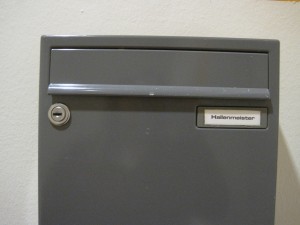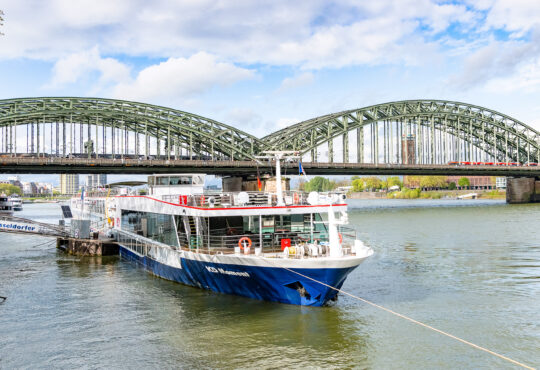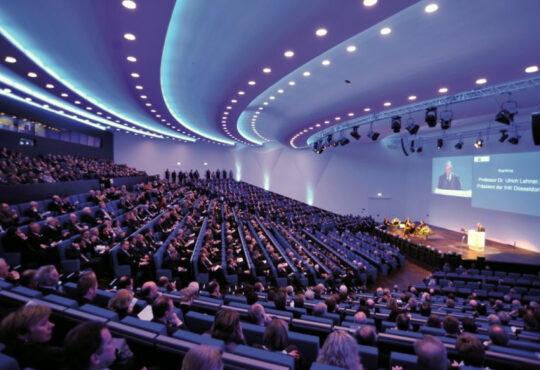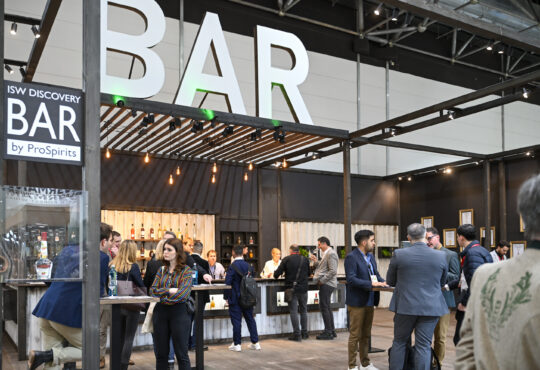Hall manager – adviser, lightning conductor and signpost
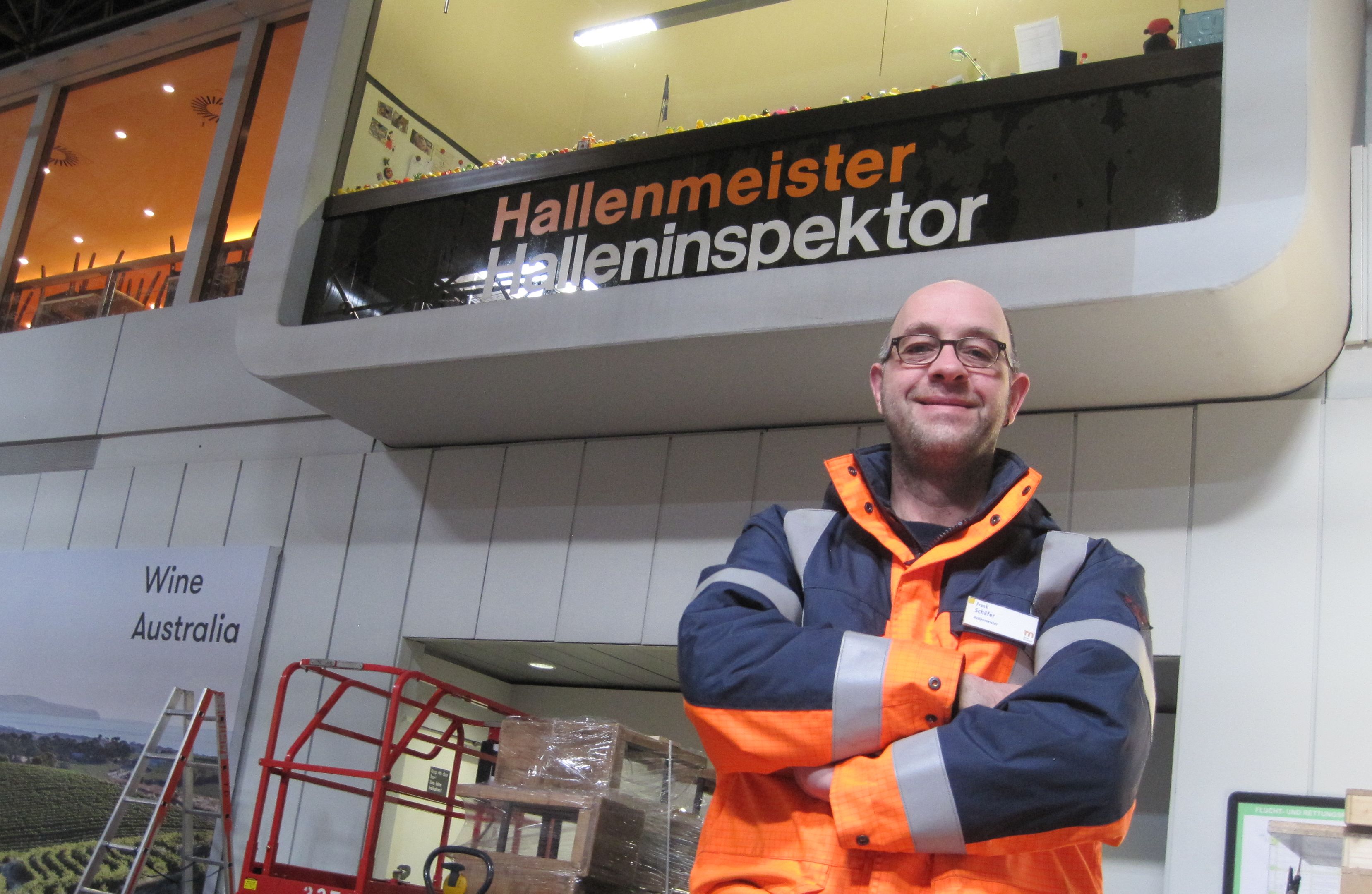
There are all kinds of different jobs and activities at Messe Düsseldorf. . Today we’d like to highlight a job which is very specific and only relates to trade fairs – a hall manager. In all, there are 17 hall managers who look after the 19 exhibition halls on our premises. To find out what a hall manager actually does, we boldly ventured into the hurly-burly of the disassembly work after ProWein and just asked one of them. To be precise, we asked Frank Schaefer who manages Hall 9.
Mr Schaefer, thanks ever so much for taking a bit of time for us among all this mayhem. We don’t want to disturb you for too long, and so we’ll get straight to the point: what exactly does a hall manager do?
It’s a wide area actually. To put it briefly, it means making sure the hall is technically and visually in a good state.
During setup the hall manager is often the first point of contact for customers. If, say, the power supply isn’t working or if the water supply has been ordered but isn’t available yet, then we make sure that the relevant department is told and that they do something about it. This means we’re signposts and information providers – the sort of people who always know what to do and where you can find or obtain this and that on the premises.
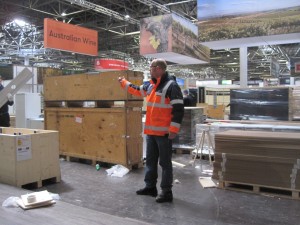 We also make sure everyone keeps our technical regulations. Are the height and width of the stand OK? Have the spotlights been attached correctly? Has everything been hung up properly and securely? Is there enough structural stability?
We also make sure everyone keeps our technical regulations. Are the height and width of the stand OK? Have the spotlights been attached correctly? Has everything been hung up properly and securely? Is there enough structural stability?
We also conduct spot checks to make sure everybody is observing health and safety rules. This means we sometimes need to protect stand builders from themselves, e.g. if there’s someone standing on a forklift truck or starts doing gymnastics at the top of a ladder. Unfortunately, not everyone can see the point straightaway, probably because safety regulations aren’t as strict in some countries.
Well, that seems to cover a pretty wide area.
Yes, and there’s a lot more to it. All through the trade fair we do of course act as points of contact for exhibitors and stand builders and give them advice, including technical advice.
And we’re also the first people who are told when something isn’t working, so that we’re “lightning conductors” for big and small problems. In other words, we accept people’s complaints and try to find solutions. This sometimes includes disputes between neighbouring exhibitors. For instance, if a neighbour’s music is too noisy, or if their advertising banner is in the way, then we act as mediators between the two parties.
Also, when the trade fair is over, we need to be on site for the dismantling. The procedure is pretty much the same as for setup, just the other way round.
And of course we have to check after each trade fair whether anything has been damaged during the event. If so, we need to record all the details and make sure those items get repaired.
Finally, we record general consumption in the halls: things like electricity and water
Thank you very much for giving us such a comprehensive overview. What sort of training or knowledge does a person need as a hall manager?
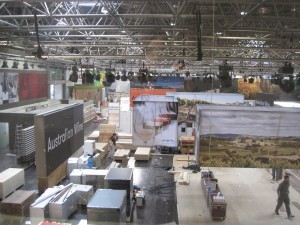 Well, first of all, they need a vocational training certificate in a trade. In addition, we all did a particular module when we trained in event engineering and took the relevant advanced qualification at the Cologne Chamber of Trade. It’s absolutely vital that a person should have some good technical understanding and skills – partly so that they can talk to stand builders at eye level. For instance, it’s important that I know why something should be done differently, and I also need to know how to explain this. I want to be able to give decent advice to a stand builder and be helpful to them.
Well, first of all, they need a vocational training certificate in a trade. In addition, we all did a particular module when we trained in event engineering and took the relevant advanced qualification at the Cologne Chamber of Trade. It’s absolutely vital that a person should have some good technical understanding and skills – partly so that they can talk to stand builders at eye level. For instance, it’s important that I know why something should be done differently, and I also need to know how to explain this. I want to be able to give decent advice to a stand builder and be helpful to them.
During setup and disassembly and also during the trade fair itself you do of course meet people from all sorts of countries, don’t you? How do you communicate with them?
Well, I can communicate with customers in German and English, and if necessary with my hands and feet. But there’s nearly always a colleague or someone we know on the premises who can help out as an interpreter on some special occasions.
Which trade fair causes the most amount of work?
ProWein and EuroShop. Those are the two where we fight real battles with all the material. With ProWein there is of course another challenge: the sheer number of exhibitors. And with Euroshop the stand construction is of a very high standard, so that it’s more a matter of shopfitting.
And which trade fair do you enjoy most of all?
CARAVAN SALON and boot are rather nice. When there’s a leisure trade fair, the atmosphere in the halls is a bit more relaxed among both exhibitors and visitors.
What’s been your most pleasant experience at the exhibition centre or as a hall manager?
I can’t think of anything in particular. But it’s always nice when an exhibitor says thank you or “Look after yourself, see you next year!” and then goes home with a feeling of satisfaction. In fact, you often see the same faces again and try to maintain a good relationship with them.
What does a hall manager do when there isn’t a trade fair going on in their hall?
That’s when we take care of repairs, often working through a backlog of repairs, and when we make sure the hall is in good nick again. It’s when we get the whole place up to scratch again. Since January we’ve had things going on in the halls almost continually, and there’s hardly been any time for major repairs between the spring trade fairs. All we could do was patch up any issues that couldn’t wait. And of course it’s when we can go on holiday from time to time.
Frank Schaefer originally trained as a carpenter. Since his apprenticeship he’s been working mainly in trade fair construction and event engineering – including several international jobs. When he started at Messe Düsseldorf in 2006, he initially worked in setup operations. He has been the manager of Hall 9 since 2010.




